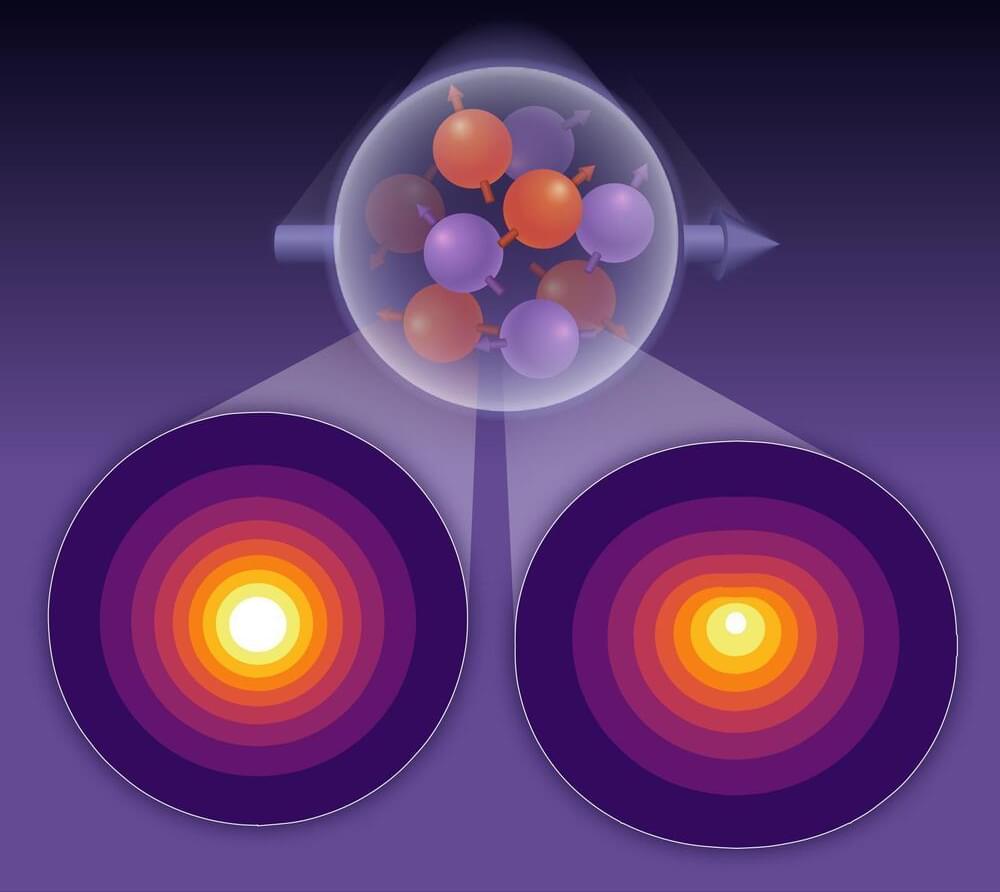A collaboration of nuclear theorists at the U.S. Department of Energy’s (DOE) Brookhaven National Laboratory, Argonne National Laboratory, Temple University, Adam Mickiewicz University of Poland, and the University of Bonn, Germany, has used supercomputers to predict the spatial distributions of charges, momentum, and other properties of “up” and “down” quarks within protons. The results, just published in Physical Review D, revealed key differences in the characteristics of the up and down quarks.
“This work is the first to leverage a new theoretical approach to obtain a high-resolution map of quarks within a proton,” said Swagato Mukherjee of Brookhaven Lab’s nuclear theory group and a co-author on the paper. “Our calculations show that the up quark is more symmetrically distributed and spread over a smaller distance than the down quark. These differences imply that up and down quarks may make different contributions to the fundamental properties and structure of the proton, including its internal energy and spin.”
Co-author Martha Constantinou of Temple University noted, “Our calculations provide input for interpreting data from nuclear physics experiments exploring how quarks and the gluons that hold them together are distributed within the proton, giving rise to the proton’s overall properties.”









Comments are closed.